
Tutorials in this Section
AWS Certifications
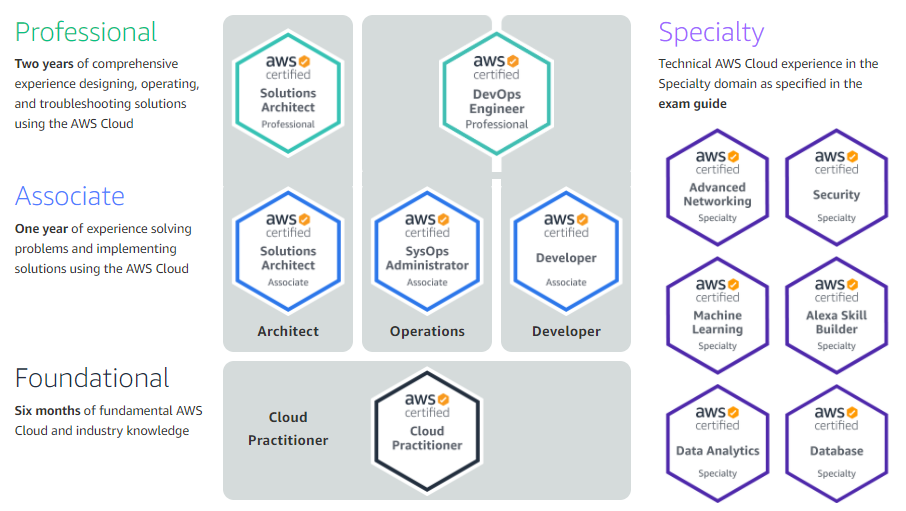
Amazon Web Services Overview
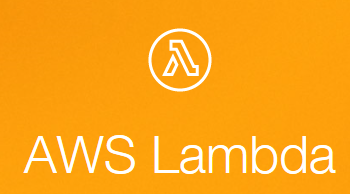
Amazon Web Services is considered to be one of the premiere Web hosting services on the Internet along with Google and Microsoft also vying for the top spot.
Below are some of the compute products available from Amazon Web Services.
Getting Started Resource Center

A Well-Architected Framework
AWS Well-Architected helps cloud architects build secure, high-performing, resilient, and efficient infrastructure for their applications and workloads.
Based on five pillars:
-
operational excellence
-
security
-
reliability
-
performance efficiency
-
cost optimization
AWS Well-Architected provides a consistent approach for customers and partners to evaluate architectures, and implement designs that can scale over time.
The AWS Well-Architected Framework started as a single whitepaper but has expanded to include domain-specific lenses, hands-on labs, and the AWS Well-Architected Tool. The AWS WA Tool, available at no cost in the AWS Management Console, provides a mechanism for regularly evaluating your workloads, identifying high risk issues, and recording your improvements.
AWS has an ecosystem of hundreds of members of the Well-Architected Partner Program. Engage a partner in your area to help you analyze and review your applications.
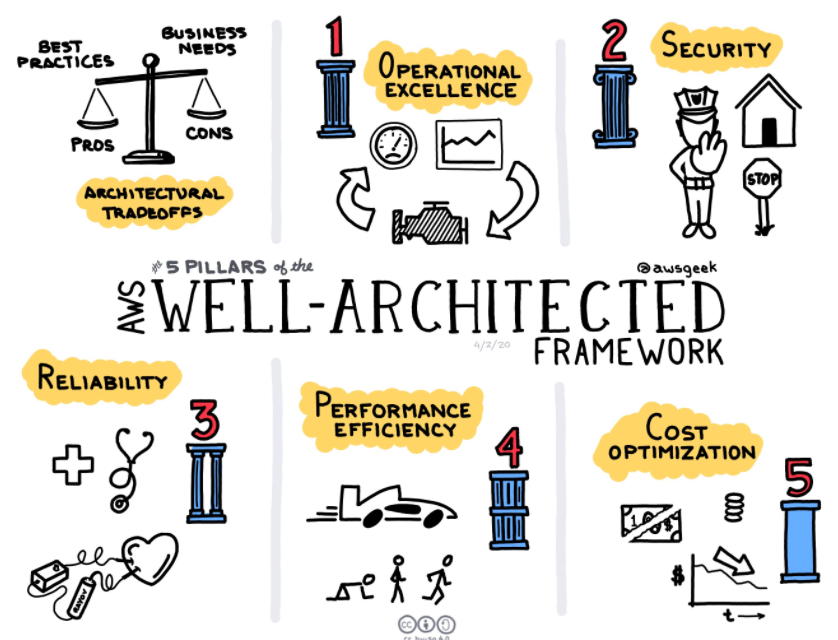
AWS Compute Services
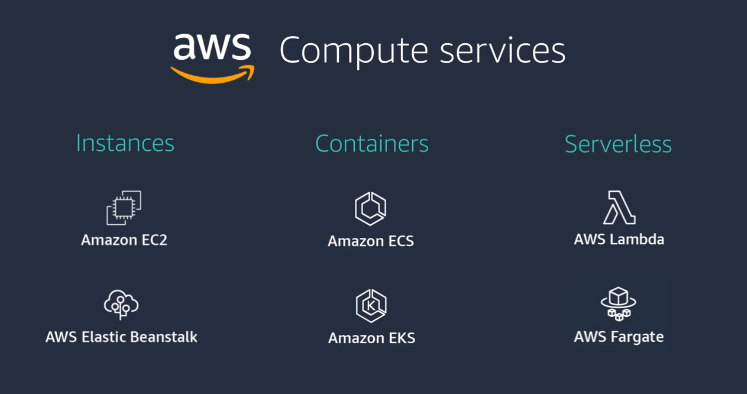
AWS compute services are organized into three categories:
-
Instances
-
Containers
-
Serverless
Instances
- Amazon EC2 (Elastic Compute 2)
- Compute Optimized
- Memory Optimized
- Storage Optimized
- AWS Elastic Beanstalk
- Makes it easier to deploy apps to Amazon EC2
- Capacity provisioning
- load balancing
- automatic scaling
- health monitoring
Containers
- Amazon ECS (Elastic Container Service)
- Amazon EKS (Elastic Kubernettes Services)
Severless
- AWS Lambda
- No need to manage or provision services
- App responds to events or can be invoked from within applications (like Web services)
- AWS Fargate
- No need to manage or provision services
- Can be used to deployAmazon ECS and AMazon EKS containers
AWS Storage and Database Services
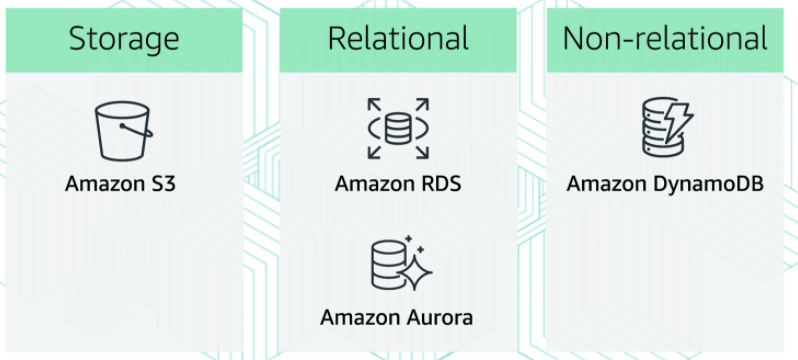
Storage
- Amazon S3 (Simple Storage Service)
- Media hosting
- Software delivery
- data backup
Relational
Non-relational
-
Amazon DynamoDB
-
Key/Value Database
-
For applications which require low latency data access at any scale
-
Used in web apps, ecommerce, game apps
AWS Identity Services
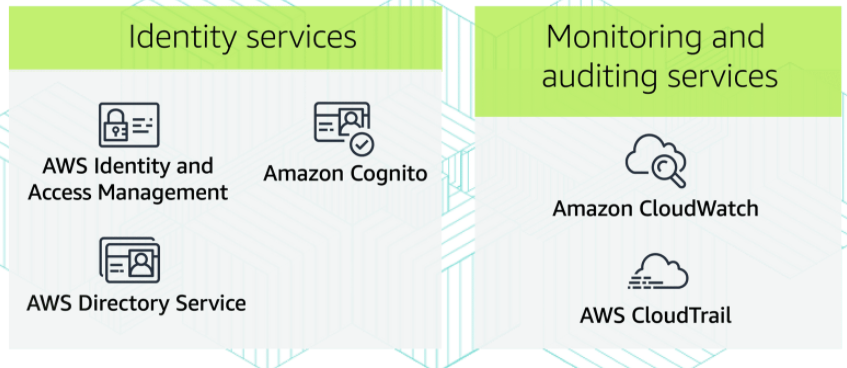
Identity
- AWS Identity and Access Management
- AWS Directory Services
- Supports Active Directory and other commercial directory services
- SSO (Single Sign-ON) using Office 365 or other similar applications
- Can Extend Microsoft Active Directory to the cloud
- Amazon Cognito
- Allows users to logon using Amazon, Google, Facebook and like accounts
- SAML supported
- Adheres to the principal of least privilege
Monitoring and Auditing Service
- Amazon CloudWatch
- Gain visibility into system wide performance and operational health
- It leverages alarms, logs and event data to take automated actions
- AWS Cloud Trail
- Tracks user activity and store data in an S3 bucket
- Records all actions taken throughout the AWS Console, AWS SDKs, command line tools and other AWS services
.NET Developer Tools
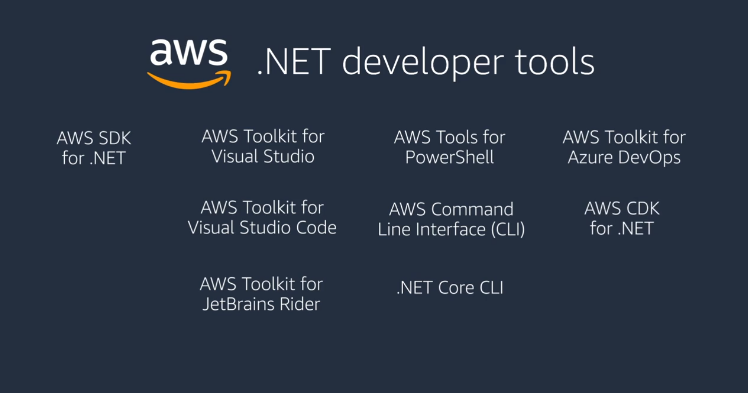
- AWS SDK for .NET
- AWS Toolkit for Visual Studio
- AWS Toolkit for Visual Studio Code
- AWS Toolkit for JetBrains Rider
- AWS Tools for PowerShell
- AWS Command Line Interface (CLI)
- .NET Core CLI
- AWS Toolkit for Azure DevOps
- AWS CDK for .Net